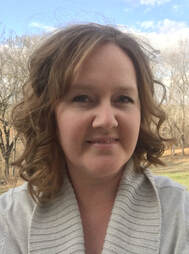|
by Amber Mills The holiday air is electric! Family dinners are frequent. Seasonal desserts are everywhere. The fragrance of Thanksgiving and Christmas is in the air. Naturally, we want to consume as much as we can. The light displays, the music, and cuddles during movies, the aroma of turkey, and the taste of grandma’s fudge—we recall precious memories through all of our senses during this season. By the time we have ventured through this wonderful time of year, we do not feel so wonderful. We have eaten too much and gained a few pounds; spent more than we should, and feeling the effects. However, one of the biggest side effects of the holidays is pure exhaustion as they come to an end. Having stayed up late too many nights making sure that every moment is used to its fullest with every corner picture perfect. I have accepted every invitation to join friends and family to celebrate. I have seen seventeen parades and twenty-two light displays, built six gingerbread houses and decorated a hundred dozen sugar cookies…or so it seems. As I sit on the couch, instead of seeing the remnants an incredible few months with my husband and boys, I just see an endless list of chores to return our lives to normal. Decorations that I couldn’t wait to display now cause anxious thoughts of how to pack it all away! I am ready for this time to be over! Somehow, I don’t think this is what God had in mind for this time of year. Now, don’t get me wrong, I have thoroughly enjoyed the time, but have I savored the moments? While pondering all of this, God pricks my heart reminding me of times in my life I have experienced the same affects of a season. There have been seasons in our ministry when we felt alone. We felt as if no one saw us. We were invisibly spinning our wheels and no one knew the struggle. Then, there have been times of incredible favor. In those times, I received many opportunities to serve in new and exciting ways. Because I knew all too well the feeling of being invisible, I wanted to seize absolutely every opportunity given, walk through every open door, and give all I had just in case this season didn’t last. Instead of feeling fulfilled in these moments, I am overwhelmed with exhaustion once again. It is as if I have experienced yet another holiday meal, over-filled my plate, consumed too much, and now I am so full that I can’t breathe. All of the things consumed were good things but moderation would have allowed me to savor each item a little more. If I can be completely honest, I am currently experiencing a season of an over-piled plate. God has given me opportunities to minister in areas that have truly captured my heart. I revel in these ministry moments. They are not just titles, but have become who I am, and I run to these experiences with great expectation. In addition, God opened some new doors and prompted my heart to walk through them. I am out of my element and unsure of my abilities in these new areas, but they are exciting as I anticipate all that God will do in them. Then, I look at my plate and I don’t know where to begin. I have added new things to try, but kept all of my old favorites. I know the outcome if I try to consume all of this. The problem is: I know I should take the new opportunities, but my heart isn’t ready to release the old ministry areas. They have my heart, my investment. Psalm 104:19 NLT: You made the moon to mark the seasons, and the sun knows when to set. I have a feeling I am not alone in this journey as I see many trying to balance an over-filled plate. We carry heavy loads sometimes because no one else is there to take some of it from us. God is teaching me something I want to share with those who are also deciding where to start: It’s okay to let go. I want to put an exclamation after that statement, but my heart needs a whispered: It’s okay to let go. If God asks you to move, He already has a plan for the hole you leave. I want to savor each item more. I want to revel in the moments as I watch God do miracles in the lives of those I get to serve. In order to do that, I have to let go. God is moving, signifying we should as well. A new year is beginning; let’s take that step of faith together.  SOMO Kid’s Camp. My heart is working with women and girls, even though I have a house full of boys. My husband, Greg Mills, and I grew up in the same church in Joplin, MO. We have been married for 20 years. We have served in full time ministry for 19 of those years. We are the lead pastor’s at Camdenton 1st A/G in Camdenton, MO. We have 4 boys which I homeschool. Brandyn, 18 is a freshman in college. Zach, 16 is a sophomore. Camryn, 14 is in 8th grade. My little Kyle is 9 years old and in 3rd grade. I serve as the Children’s pastor and women’s leader in our church as well as the sectional Women’s and Girl’s Ministries rep. I have worked as a children’s pastor for over 15 years. Kids are the key not only to our survival as a church but also in our endless pursuit to evangelize our world. They must be taught who we are, why we are, and what we are truly called to do and be. To be able to walk alongside these little ones as they discover these truths for themselves is both a blessing and personally inspiring beyond measure.
0 Comments
By Terry Magness Have you ever found yourself so caught up in your day that you forgot to eat? I confess I have, but not often. Usually, my body signals when it is hungry or thirsty, and well, you know the rest. It's a fact: we need food and water in order to live. According to Peter Janiszewski, Ph.D, records show that severe symptoms of starvation appear approximately thirty-five to forty days in someone deprived of food. Death usually results within forty-five to sixty-one days, that is, if the individual has a source of hydration. In a vegetative, inactive state without food and water, survival would only be ten to fourteen days. The more active the person is the more resources he uses, therefore, lessening his time of survival. Did you know the less we drink, the less we want to drink? Likewise, when we fast for several days, our sense of hunger diminishes, so that after a week or so, we no longer desire food. Perhaps our internal warning system simply shuts down, or we somehow fail to hear the signals. It remains, unless we decide to eat and drink, and our body dies. Could the same be true of the human heart deprived of daily intimate fellowship with the Spirit of the living God and His Word? God said through His prophet Ezekiel, "I will give you a new heart, and a new spirit I will put within you. And I will remove the heart of stone from your flesh and give you a heart of flesh." I remember clearly the day when God took my dry, hardened heart and replaced it with a soft, pliable, and tender heart, one not afraid to be vulnerable. For the first time in many years, I could feel again. I was no longer in survival mode, but I was alive. Once again I could cry tears that had long ago dried up. We all experience some desert places in our lives. A good question we can ask ourselves during those dry times is, "Am I malnourished or dehydrated in my spirit?" In order to find the answer to that question, I do a pulse check. "Has my intimacy with Jesus diminished? How is my Word intake level?" If the answer is "yes", I run, not walk, to the Wellspring of Life, and spend some quality time with Him. Are you feeling parched and dry? Are the pressures of life and ministry mounting? Do you feel yourself going through the motions, or maybe even shutting down? Are the pangs of hunger in your soul acute or are they dangerously fading away? Stop! Take a break. Breathe. Nothing is more important than this moment. Nestle back in your chair and prepare your heart to be filled by Jesus, the Bread of Life. He knows you. You can rest in his Presence. Tip the cup of remembrance to your lips as you sip the essence of His peace, His goodness, His kindness, His love. Let your mind feast on His Word. Drink deeply of the living waters of His Spirit. Acknowledge His eternal life within you, and give thanks for the dawn of a new day.  Terry Magness has been in Christian ministry for forty years, is a licensed minister, author, pastoral counselor to church leaders, missionary, and founder of Grace Harbour Ministries, a Bible based international teaching and discipleship ministry to women. She oversees and teaches needs-based Overcomers classes in her local church, dedicated to helping men and women apply Biblical principles to every life situation. Terry is a lover of people in general, and her family in particular. She enjoys good friends, stimulating conversation, writing, photography, and fishing with her husband, Don. |
This is a safe place for ministry wives and women ministers to be renewed, resourced, and build relationships with others just like you.
Search Our Blog Archives by Keyword Below
Categories
All
Archives
June 2024
|
Proudly powered by Weebly



